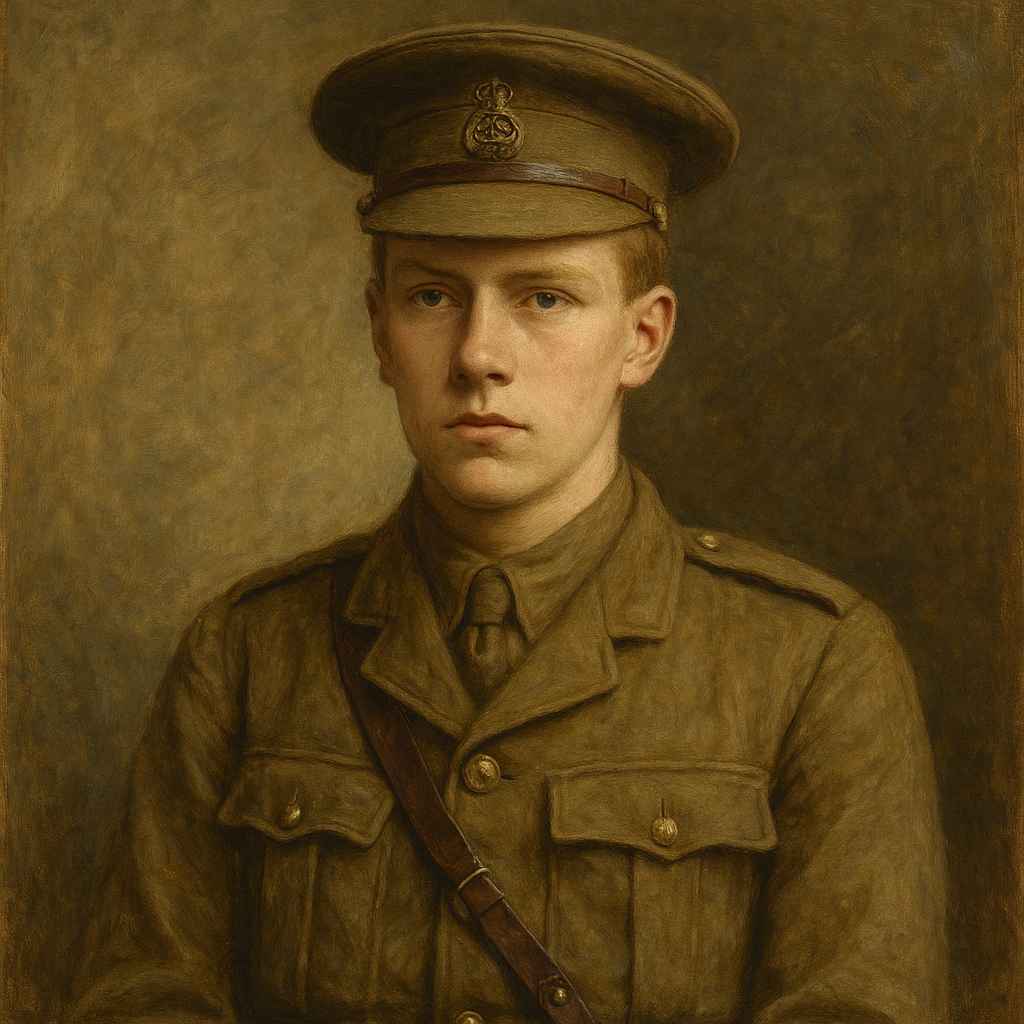East Kennet Church at Evening
Charles Sorley
1895 to 1915

I stood amongst the corn, and watched
The evening coming down.
The rising vale was like a queen,
And the dim church her crown.
Crown-like it stood against the hills.
Its form was passing fair.
I almost saw the tribes go up
To offer incense there.
And far below the long vale stretched.
As a sleeper she did seem
That after some brief restlessness
Has now begun to dream.
(All day the wakefulness of men,
Their lives and labours brief,
Have broken her long troubled sleep.
Now, evening brings relief.)
There was no motion there, nor sound.
She did not seem to rise.
Yet was she wrapping herself in
Her grey of night-disguise.
For now no church nor tree nor fold
Was visible to me:
Only that fading into one
Which God must sometimes see.
No coloured glory streaked the sky
To mark the sinking sun.
There was no redness in the west
To tell that day was done.
Only, the greyness of the eve
Grew fuller than before.
And, in its fulness, it made one
Of what had once been more.
There was much beauty in that sight
That man must not long see.
God dropped the kindly veil of night
Between its end and me.
Charles Sorley's East Kennet Church at Evening
I am busy working to bring Charles Sorley's "East Kennet Church at Evening" to life through some unique musical arrangements and will have a full analysis of the poem here for you later.
In the meantime, I invite you to explore the poem's themes, structure, and meaning. You can also check out the home page for other musical arrangements or learn more about Charles Sorley's life and contributions to literature.
Check back soon to experience how "East Kennet Church at Evening" transforms when verse meets melody—a unique journey that makes poetry accessible, engaging, and profoundly moving in new ways.
Want to join the discussion? Reopen or create a unique username to comment. No personal details required!



Comments
No comments yet. Be the first to comment!